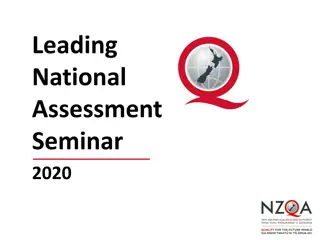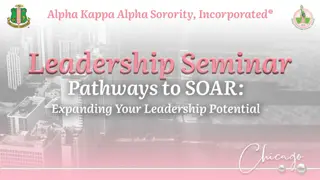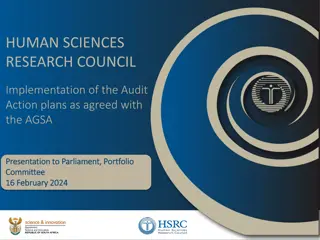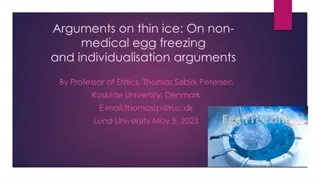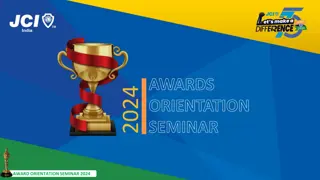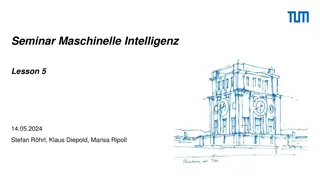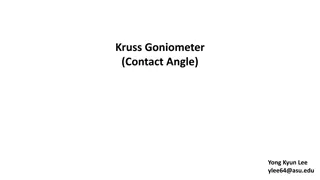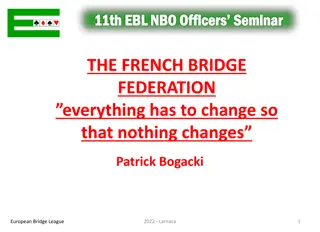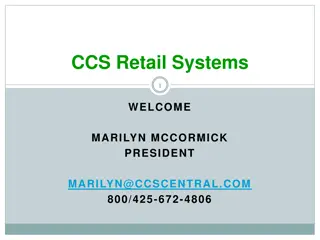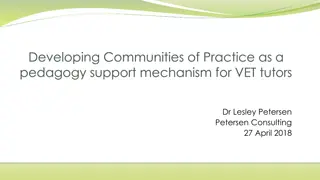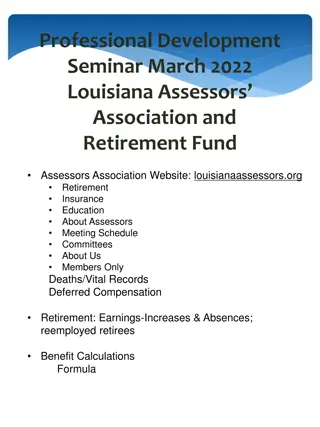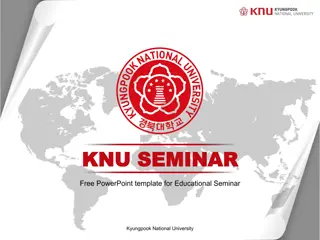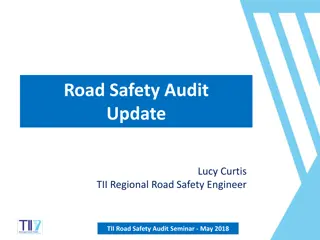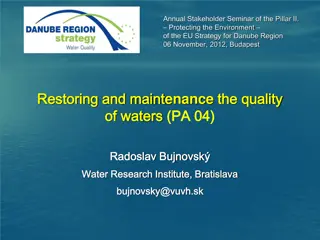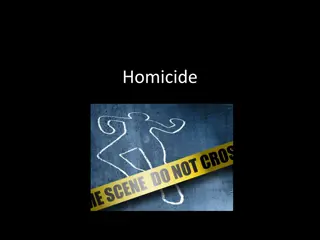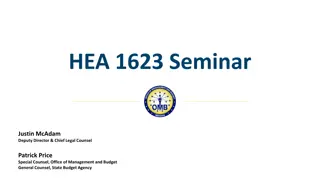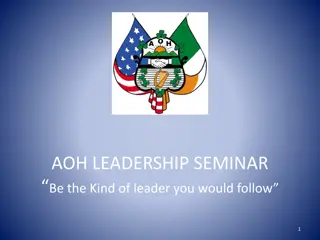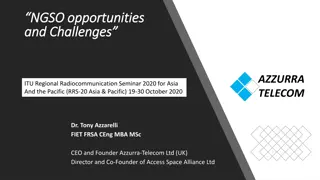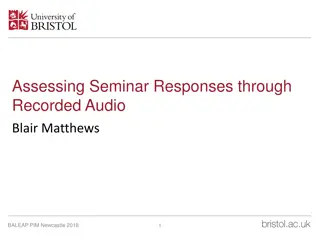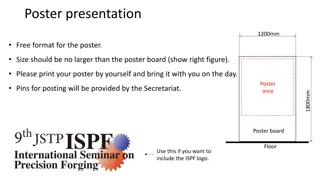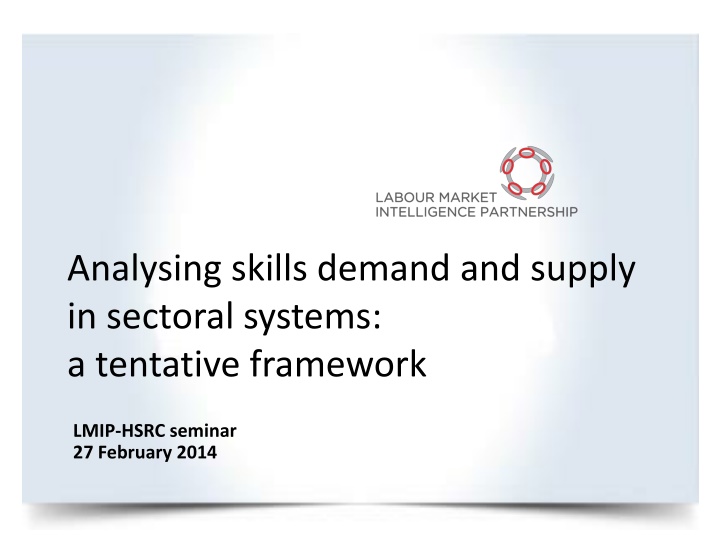
Enhancing Skills Alignment in South Africa's Sectoral Systems
Explore the challenges and strategies for addressing skills gaps in South Africa, focusing on aligning education and training with the needs of public and private sectors. Discover how an innovation systems approach can provide dynamic insights into skills development and system configuration for optimal alignment.
Download Presentation

Please find below an Image/Link to download the presentation.
The content on the website is provided AS IS for your information and personal use only. It may not be sold, licensed, or shared on other websites without obtaining consent from the author. If you encounter any issues during the download, it is possible that the publisher has removed the file from their server.
You are allowed to download the files provided on this website for personal or commercial use, subject to the condition that they are used lawfully. All files are the property of their respective owners.
The content on the website is provided AS IS for your information and personal use only. It may not be sold, licensed, or shared on other websites without obtaining consent from the author.
E N D
Presentation Transcript
Analysing skills demand and supply in sectoral systems: a tentative framework LMIP-HSRC seminar 27 February 2014
The challenge How do we address skills gaps in South Africa to improve alignment between what the E&T system produces, and the needs of the public and private sectors? How can industry and education organisations work together to produce relevant graduates at all skills levels? We can try to create projections for skills needed in specific sectors But these projections have limited policy utility without also having an understanding of how organisations interact to match the supply of and demand for skills
An innovation systems approach? Framework builds on and informed by research on knowledge generation role of universities institutional policies, structures and mechanisms that promote or constrain distinct forms of interaction, with their associated benefits for firms in a sector, and for universities What new kinds of questions and insights would be possible, if focus directly on skills development, and across the post-school system? Alignment between knowledge, skills and capabilities for learning in firms, and those in the education and training sub-systems Dynamic; historical trajectories and path dependence Systems: interaction, mapping flows of knowledge and resources between actors, for learning and innovation Identify mis/alignment between networks, gaps, missing organisations and critical blockages Potential value : provide a dynamic analysis of firms and their skills needs in relation to dynamic processes of technological upgrading, and of the interactive capabilities of education and training systems, which would enable us to move beyond static conceptions of supply and demand side matching
The research approach Theoretical stance: innovation systems approach / dynamic interactive capabilities What are the main components in the SSI addressing skills needs? How do firms meet routine and non-routine skills needs? How do public and private sector intermediary organisations build network alignment and address misalignment in relation to skills development in the SSI? What are the interactive capabilities of the E&T system to address the dynamic skills needs of firms? What is the nature of mis/alignment between skills supply and demand in the SSI? What are the challenges/constraints/threats to growth and skills development in the SSI? > Identify opportunities for improved interaction and system configuration
Main sector of economy Specific sectoral innovation system Geographical spread Un/structured approach to skills development Primary sector Agro-processing: Forestry / sugar KZN Industry led schemes and ad hoc Secondary sector Automotive: OEMs Eastern Cape Government incentivisation schemes Tertiary sector Business Process Outsourcing Western Cape, Gauteng Regional schemes and ad hoc High technology / big science SKA National / Western Cape Foresight and planned skills development
MECHANISMS/STRATEGIES SKILLS DEMAND SKILLS SUPPLY AD Org linkages (knowledge & experience) (e.g. UILs) B B University IM IM B B SMME AD B AD AD FET B B IM B Resources (e.g. bursary programmes) Large AD AD AD B Private IM IM MNCs IM IM Skills AD IM movement (graduates, up- skilling) Other IM IM AD AD Other Interpreting & implementing policy Interpreting & implementing policy Sector interms (private) Sector interms (public) e.g. IPAP2 Policy e.g.NDP3 Capability building processes in the SSI
Four building blocks 1. Actors and networks Identify main actors and networks of actors involved in skills development in the SSI (firms, E&T orgs, sectoral intermediaries) Knowledge base and technology Skills needs routine and non-routine changes Analyse the national and global drivers of technological change Challenges/threats/constraints to growth and meeting skills needs Institutions Relevant national and sector-specific policies Other formal and informal institutions impacting on the firm Competencies, interactive capabilities and dynamic interactive capabilities Mis/alignment between networks of skills supply and demand 2. 3. 4.
Capability building processes in the SUGAR SSI KZN SKILLS SUPPLY MECHANISMS/STRATEGIES SKILLS DEMAND UNIVERSITIES 1. UKZN 3. MUT 5. Wits (Tongaat) 7. Stellenbosch 2. U ZULULAND 4. DUT 6. Pretoria CANE GROWERS 1. 25 200 Small-scale farmers 2. 1 570 Large scale growers (83.2% of crop) 3. 4 sugar cane growing companies Org linkages (knowledge & experience) FET COLLEGES 1. Coastal 3. Esayidi 5. Mnambithi 7. Thekwini 9. Umgungundlovu Resources (e.g. bursary programmes) 2. Elangeni 4. Majuba 6. Mthashana 8. Umfolozi MILLERS IN KZN 1. Illovo Sugar (4) 2. Tongaat Hulett (4) 3. Tsb (1 in KZN, 2 Mpum) 4. Gledhow Sugar Company (PTY) (1) 5. Union Cooperative Limited (1) 6. Umfolozi (1) Skills movement (graduates, upskilling) PRIVATE PROVIDERS 1. Shukela (STC) 2. AGB MATHE PUBLIC INTERMEDIARIES 1. Dep of Agri & Environ Affairs KZN 2. DAFF 3. DHET 4. AgriSeta 5. MerSeta PRIVATE INTERMEDIARIES 1. SASA (incl. SASRI, Shukela) 2. SA Cane Growers Assoc 3. SA Sugar Millers Assoc 4. SMRI AGRICULTURAL COLLEGES 1. Cedara College of Agriculture 2. Owen Sithole College of Agriculture Interpreting & implementing policy Interpreting & implementing policy NGP Policy NDP IPAP Sugar Act NSDS
CAPABILITY BUILDING PROCESSES: EDUCATION & TRAINING ORGANISATIONS Interactive capabilities Competencies Capability building mechanisms/strategies Embodied/tacit Skills in specialised areas Willingness/motivation to interact Leaderships skills (social skill) Organisational planning etc. Disembodied/codified Organisational structures (e.g. technology transfer office, research centres) Institutional policies (formal) Diversified funding base etc. Internal interface Feedback systems (internal evaluations, rewards) Incentivesfor academic excellence Functional integration etc. External interface Research collaboration (e.g. university-industry interaction) Consultancy and lab services Graduate placement Co-operative learning programmes Industry involvement Training courses Staff exchange etc. Circumstance Researching interactive capabilities inside education & training organisations Environmental turbulence Sensing Learning Integrating Coordinating Dynamic interactive capabilities
Approach of benefit to a sector / SETA Package the research design and instruments for use by SETAs to analyse specific sub-sectoral systems of innovation / regionally located ? Map of key post-school E&T, firm and intermediary actors and networks Analysis of skills development challenges across sector Policies, structures and mechanisms that work in practice as models Identify misalignment and gaps for intervention
gkruss@hsrc.ac.za ipetersen@hsrc.ac.za mgastrow@hsrc.ac.za tfraser@hsrc.ac.za

